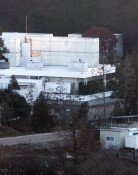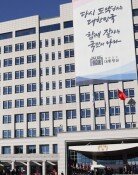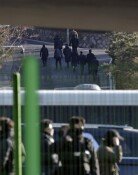Seoul must refrain from dangerous gambling with Washington
Seoul must refrain from dangerous gambling with Washington
Posted May. 22, 2020 07:52,
Updated May. 22, 2020 07:52
“In effect, the May 24 measures have lost their effectiveness to a significant extent,” said the spokesperson at the Ministry of Unification, adding that it does not pose any impediment to pursuing interchange or cooperation between the two Koreas. The ministry said that the remarks do not mean to “scrap” the May 24 measures altogether, but stressed again that the measures have lost “effectiveness.” In response, the U.S. State Department said Washington is coordinating with South Korea to ensure inter-Korean cooperation proceeds hand in hand with the progress towards denuclearization of North Korea.
The May 24 measures, which mark the 10th anniversary this year, are a set of Seoul’s independent sanctions against Pyongyang to shut down all activities including trade, visits, and investments as a response to Pyongyang’s torpedoing the Cheonan warship. Under the former Lee Myung-bak administration, however, the sanctions lost effectiveness in many aspects through alleviations and exceptions. Yet, the measures have stayed in place for a decade when there has not been a single apology from the North. During the parliamentary inspection of the administration in 2018, the Ministry of Unification drew a line clearly, saying, “Our stance has not changed.”
The fact that the ministry claimed the measures to have lost “effectiveness” attests to the government’s drive to pursue more proactive North Korea policies. This may well be a follow-up measure for President Moon Jae-in’s call for “finding what the two Koreas can do on their own instead of just relying on the U.S.-North Korea talks.” At home, there has been backlash equating the administration’s North Korea policies with an indulgence for provocations, and from Washington, there have been attempts to put the brakes on such policies, but now the Moon administration is showing a willingness to press ahead at any rate.
Some officials at the administration and the ruling party in Seoul argue that it is time to harness the landslide win in the recent general elections and the president’s high-flying approval ratings so as to push the agenda for inter-Korean cooperation even at the expense of suffering frictions with Washington. The remaining five months until the presidential election in the U.S. are the window of opportunity to move the heart of President Donald Trump, who is hungry for diplomatic feats. South Korea president’s special advisor Moon Jung-in claimed the only way to break the logjam is Kim Jong Un’s visit to Seoul, and former Chief of Staff Lim Jong-suk said President Moon will press ahead with this even in the face of negative opinions.
All in all, the administration’s change of tack seems to intend to repeat the failed process from the couple of years back that was designed to induce talks between the U.S. and North Korea by initiating inter-Korean dialogues. But it remains unclear whether Pyongyang is willing to chime in, and any rash move between the two Koreas is bound to trigger conflicts within South Korea and between South Korea and the U.S. At this juncture, any headlong decision out of anxiousness will be no different than a dangerous gambling.







